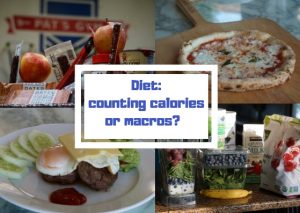 I am always getting asked questions about diets and how many calories should someone be consuming. The focus is always on calories. Having the focus be on calories is stressful, and ignores the nutritional value of the calories. The premise of counting calories is that all calories are created equal; that is the fallacy of most diets.
I am always getting asked questions about diets and how many calories should someone be consuming. The focus is always on calories. Having the focus be on calories is stressful, and ignores the nutritional value of the calories. The premise of counting calories is that all calories are created equal; that is the fallacy of most diets.
I recommend focusing on macro-nutrients because then you focus on the right thing; are you getting the nutrients you need, or are you merely eating dead calories that turn to fat.
Serious athletes generally pay attention to macro-nutrients as a way to optimize performance. So, I recommend to dieters to focus on macro-nutrients as a way to be health-conscious even on a diet. In addition, it’s a great way to create a sustainable eating pattern versus focused on a short-term diet where the calories will return, and it doesn’t help educate you on eating healthy long term.
So, when you are dieting based upon macros, you are focusing on getting a certain number of macronutrients – proteins, carbohydrates and fat versus focused merely on calories.
First, you will classify foods based upon the primary macronutrient it contains. Most foods contain a variety of macronutrients but are predominant in one. For example, meat contains a protein and fats, but it is primarily protein. Sweet potatoes are considered a carb even if it has a bit of protein. This primary classification simplifies the diet.
It’s important to remember that not all macronutrients are created equal. In past blogs, I have discussed fats (saturated, non-saturated, trans fats, etc.), and carbs as being high glycemic and low glycemic. You have to understand that difference, so you ingest the right macronutrients.
Here are healthy choices in every macronutrient category:
Carbs – go with low glycemic such as whole grains, leafy greens, carrots, celery and the like. Stay away from refined carbs such as white rice, white bread, and white pasta.
Proteins – stay with organic lean red meat, chicken, fatty fish and eggs
Fats – stay with non-saturated fats, limit saturated fats, and avoid trans fats; so, use avocado/olive oils, and eat nuts
A macro diet will help you focus on the quality of the foods you’re consuming. It will help you make nutritious choices because you’re focused on the quality of the food. There are several benefits to counting macros versus counting calories. First and foremost, it may help you make more nutritious choices by forcing you to consider the quality of your food.
I can provide you with some information on the number of carbs, proteins, and fats to eat. I can also give you ideal ratios to achieve. However, the number of grains or percentages of macros to consume will vary based upon your goals. Contact me if you’re interested in a diet or more information. This is a great way to eat – focus on macros – if you want to be healthy and want a diet that is sustainable. Just remember the principle that all calories are created equally.
